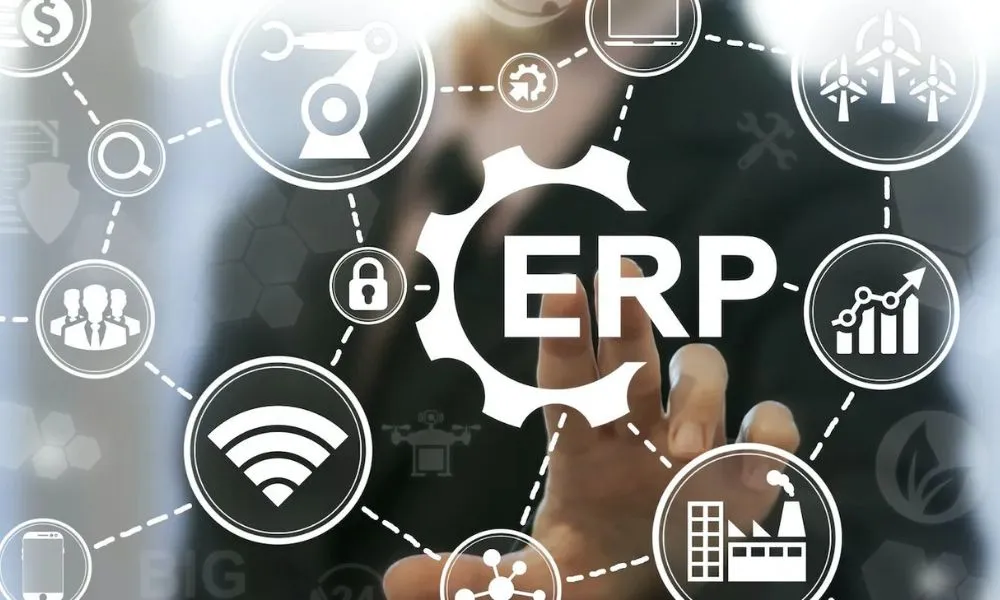
Who Can Benefit the Most from a Comprehensive ERP System?
In today’s fast-paced business environment, staying competitive requires more than just hard work—it requires the right tools. One of the most powerful tools available to modern businesses is a comprehensive Enterprise Resource Planning or ERP system.
ERP systems help integrate and streamline key business processes, from finance and human resources to supply chain management and sales. But which businesses can truly reap the most benefits from an ERP system?
1. Growing Small and Medium Enterprises (SMEs)
For small and medium enterprises (SMEs), growth often brings new challenges—managing more customers, dealing with increased inventory, and navigating complex financials. An ERP system can help SMEs manage these challenges by integrating all aspects of the business into one system, making it easier to scale.
Why SMEs Benefit:
- Centralised Data: As SMEs grow, it becomes harder to track data across different departments. An ERP system centralises information, making it easier to access real-time data on sales, inventory, and financials.
- Scalability: ERP systems are flexible and scalable, allowing SMEs to start with the basics and add more advanced features as their needs grow.
- Cost Efficiency: ERP systems automate many manual processes, reducing errors and saving time—both crucial for SMEs with limited resources.
2. Manufacturing Businesses
Manufacturing companies rely on precise coordination between various departments—purchasing, production, inventory, and quality control. Without proper management, a small mistake in one area can disrupt the entire production line. ERP systems are particularly beneficial in managing this complexity.
Why Manufacturers Benefit:
- Production Planning: ERP systems streamline production scheduling, allowing manufacturers to optimise resources and meet deadlines more efficiently.
- Inventory Management: For manufacturers, keeping the right balance of raw materials and finished products is key. ERP systems help track inventory levels, prevent stockouts, and reduce excess inventory.
- Quality Control: ERP systems can also integrate quality control measures, ensuring that products meet regulatory and customer standards at every stage of production.
3. Retail and E-commerce Businesses
The retail and e-commerce industries are highly competitive, and managing inventory, customer orders, and supply chains effectively is crucial for success. An ERP system can simplify these processes by offering real-time visibility into every aspect of the business, from stock levels to customer data.
Why Retailers Benefit:
- Omnichannel Management: Whether you’re managing an online store, a physical shop, or both, ERP systems help keep inventory, sales, and customer information synchronised across all platforms.
- Customer Insights: ERP systems track customer behaviour and purchasing trends, allowing businesses to create targeted marketing strategies and improve customer retention.
- Inventory Control: Managing stock levels and reordering can be a headache for retailers. ERP systems provide real-time updates on inventory levels, making reordering and stock management seamless.

4. Construction and Real Estate Companies
In the construction and real estate sectors, managing multiple projects, contractors, and budgets can get complicated. ERP systems are a perfect fit for these industries, as they help streamline project management, budget tracking, and resource allocation.
Why Construction and Real Estate Benefit:
- Project Tracking: With an ERP system, you can track project timelines, budgets, and resources all in one place, ensuring that projects stay on track.
- Cost Management: ERP systems allow construction firms to monitor expenses in real-time, preventing cost overruns and ensuring better financial control.
- Subcontractor Coordination: ERP systems also improve communication and coordination between subcontractors and suppliers, helping avoid costly delays.
5. Healthcare Providers
Healthcare organisations—whether large hospitals or smaller clinics—require a high level of efficiency to manage patient records, appointments, and regulatory compliance. An ERP system can integrate all these functions, reducing administrative burdens and improving patient care.
Why Healthcare Benefits:
- Patient Management: ERP systems streamline patient data management, helping providers maintain accurate medical records and reduce duplication.
- Compliance and Reporting: With an ERP system, healthcare providers can ensure compliance with regulations, such as HIPAA, and generate accurate reports for audits or regulatory submissions.
- Resource Optimisation: Managing healthcare staff, equipment, and pharmaceuticals is easier with an ERP system, which provides a clear overview of resource availability and usage.
6. Food and Beverage Industry
The food and beverage industry operates under strict regulations regarding quality control, safety, and traceability. ERP systems in Singapore, for instance, are well-suited for this industry as they provide end-to-end visibility into supply chains, production processes, and regulatory compliance.
Why Food and Beverage Businesses Benefit:
- Traceability: ERP systems help businesses track ingredients and finished products, ensuring that they can quickly identify and manage issues related to recalls or quality control.
- Quality Assurance: ERP systems allow businesses to integrate quality checks into every stage of production, ensuring that products meet safety standards.
- Inventory and Batch Control: For food and beverage companies, managing perishable goods is crucial. ERP systems help monitor expiration dates, optimise stock levels, and track production batches.
7. Wholesale and Distribution Businesses
Wholesale and distribution companies handle large volumes of products, which require efficient inventory management and supply chain coordination. An ERP system is a natural fit, as it allows wholesalers to streamline operations and improve order fulfilment accuracy.
Why Wholesale and Distribution Benefit:
- Improved Order Management: ERP systems help businesses manage customer orders, ensuring timely and accurate deliveries while reducing errors.
- Supply Chain Optimisation: ERP systems give wholesalers better visibility into their supply chain, helping them identify bottlenecks and improve supplier relationships.
- Real-Time Inventory Tracking: ERP systems provide up-to-date information on stock levels across multiple locations, helping prevent stockouts and overstocking.
8. Non-Profits and NGOs
Non-profit organisations may not be profit-driven, but they still require efficient management of donations, grants, volunteers, and resources. An ERP system helps non-profits ensure transparency and accountability, which are essential for maintaining donor trust.
Why Non-Profits Benefit:
- Donor Management: ERP systems allow non-profits to track donations and grants, ensuring that funds are allocated correctly and efficiently.
- Volunteer Coordination: Managing volunteer schedules and activities becomes much easier with an ERP system, allowing non-profits to maximise their impact.
- Financial Reporting: Non-profits need to provide detailed reports to donors and regulatory bodies. ERP systems make it easy to generate accurate financial reports that demonstrate accountability.
Conclusion
Whether you’re running a small business looking to scale, a large manufacturing firm with complex production needs, or a healthcare provider managing patient care, an ERP system can significantly enhance your business operations. The benefits of ERP are clear: improved efficiency, streamlined processes, better decision-making, and real-time access to data.
Choosing the right ERP system depends on your specific industry needs, but the advantages of implementing such a system will ultimately lead to increased productivity and profitability for your organisation. As businesses continue to evolve and grow, ERP systems will remain a crucial tool for staying competitive in a rapidly changing world.


